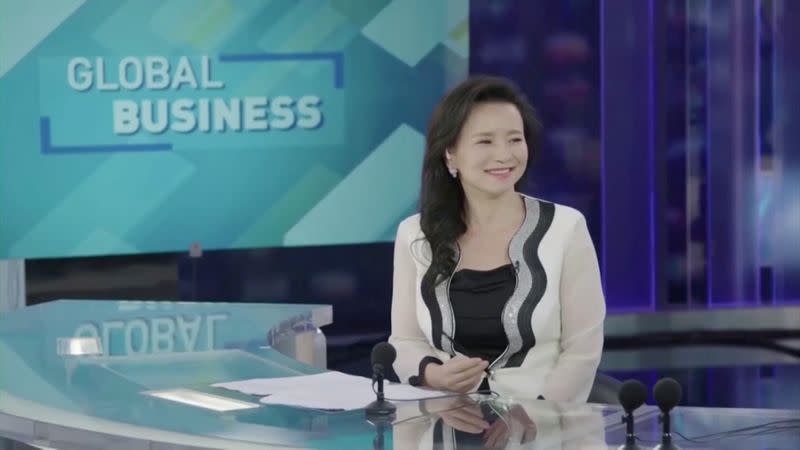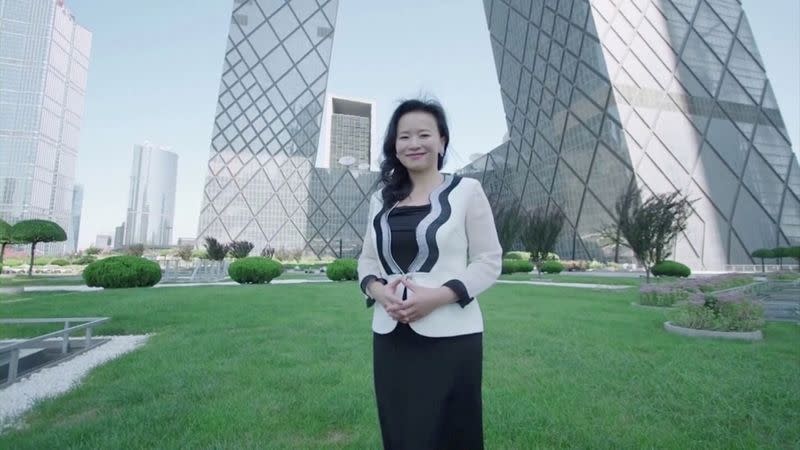Australian journalist formally arrested in China on suspicion of leaking secrets
By Kirsty Needham
SYDNEY (Reuters) - An Australian journalist who has been detained for nearly six months in China where she worked for a state-television channel has been formally arrested on suspicion of illegally supplying state secrets overseas, the two countries said on Monday.
The announcement came as the family of Cheng Lei, 49, pleaded with authorities to grant the former high-profile news anchor access to her two school-age children.
"We are absolutely convinced of her innocence," a family representative said in an emailed statement to Reuters. "We respect China's judicial process and urge the authorities bring this matter to a swift, compassionate and timely conclusion."
Cheng was arrested on Feb. 5, Australia's Foreign Minister Marise Payne and Chinese foreign ministry spokesman Wang Wenbin said separately on Monday.
The journalist was born in China but moved with her parents to Australia as a child, and attended university in Queensland. Her children, aged nine and eleven, were visiting their grandparents in Australia during school closures in Beijing caused by the COVID-19 pandemic when she was detained.
Tensions between Australia and China have been high for the past year after Canberra called for an international investigation into the source of the pandemic and Beijing responded with trade reprisals.
Cheng, a former business news anchor on Chinese state media's English-language channel CGTN, where she had worked for almost a decade, had regularly attended business functions and embassy events for the Australian community while working in Beijing.
Payne said the Australian government "has raised its serious concerns about Cheng's detention regularly at senior levels, including about her welfare and conditions of detention."
Wang, the Chinese spokesman, said that all of Cheng's rights were being "fully guaranteed".
He told a regular news briefing in Beijing that China hoped Australia could respect China's judicial sovereignty and not interfere in China's handling of the case.
FAMILY'S FEARS
Australia's former ambassador to China, Geoff Raby, said Cheng's case "would seem to go beyond issues in the bilateral relationship" between the two countries.
"Support for Lei is, however, made much more difficult in the absence of high-level contact between the governments," Raby told Reuters.
Cheng's family also requested she be given access to reading material to safeguard her mental health.
"Whilst a long time Australian citizen, Lei also has a great love for the country of her birth and is highly respected across the globe," the family statement said.
Payne said officials had visited Cheng six times during her detention, most recently at the end of January.
In the days after Cheng's August detention was made public, two Australian foreign correspondents were flown out of China, helped by Australian consular officials after the pair were questioned by China’s state security ministry.
China's Foreign Ministry subsequently revealed that Australia's security agency had questioned Chinese journalists working in Australia in the weeks before Cheng was detained.
Another Australian, writer Yang Hengjun, is facing trial in Beijing on espionage charges that he denies, after being arrested in January 2019 at Guangzhou airport.
(Reporting by Renju Jose and Kirsty Needham; Additional reporting by Gabriel Crossley in Beijing; Editing by Christopher Cushing, Jane Wardell and Pravin Char)



